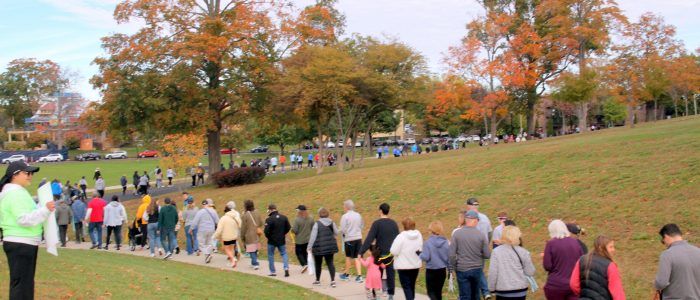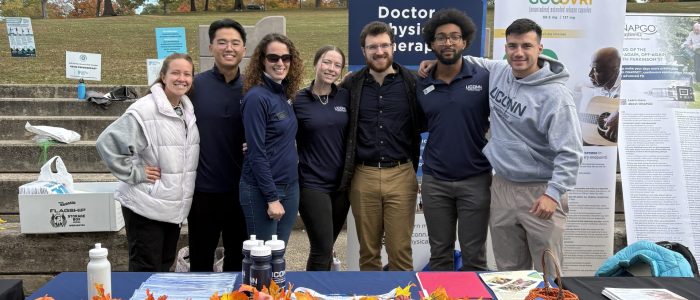On October 18th, 2025 Dr.Colón-Semenza and the Movement for Life Lab had the pleasure of attending the annual Parkinson’s Foundation Moving day in New Britain, CT. For the uninitiated, Moving day is a fundraising walk that gathers individuals and families from various communities in support of those living with Parkinson’s disease.
The Movement for Life Lab conducted fall risk screening for individuals that visited the event. The fall risk screening is a brief three item questionnaire that asks the participant about their twelve month history of falls, episodes of freezing gait, and assessment of their gait speed. Our role in the lab is to set up and carry out a 10 meter walk test to gather their gait speed data. Using this these factors, the assessment is able to predict if the partcipant is a high, moderate or low risk of falls.
This year was a wonderful turnout and we hope to see you and all our exercise class members at the next one!

